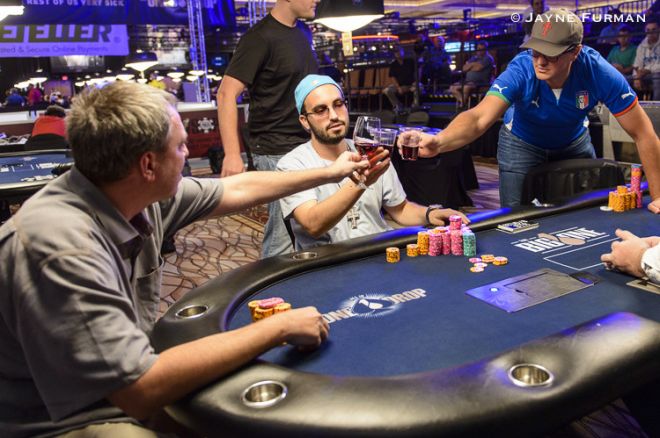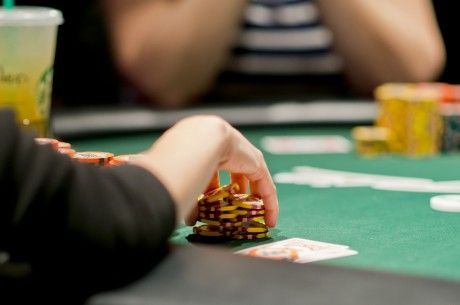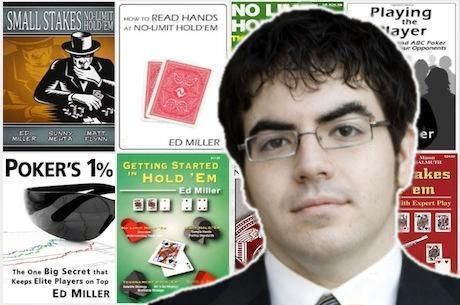Five Tips to Make Your Poker Game Happier and More Profitable

It��s time for me to do a little spring cleaning. I keep a running list of ideas for future articles. Looking over it this week as I sat down to write, I noticed that a bunch of them would merit a paragraph or two, but not a whole article. So I��m decluttering my list by assembling several miscellaneous tips to make your poker-playing more courteous and more profitable.
1. My little deuce scoop
If you��re new to poker, one sure way to announce that fact to all in attendance is to refer to a card with a ��2�� on it as a ��two.�� No. In poker, it is always, always, always called a ��deuce.��
The first ten or twenty times you say this, you��ll think it sounds strange �� like an affectation. But if you hang around poker rooms long enough, it will start to feel natural. Then, in time, you��ll join the ranks of us for whom hearing that card called a ��two�� sounds as wrong and strange as the word ��deuce�� probably sounded to you at first.
Similarly, ��trey�� is used instead of ��three,�� though this isn��t done as universally as ��deuce,�� so failure to make this change isn��t as much of the mark of a newbie.
2. Keep a lid on it
By all means, have fun and help make sure the table at which you��re playing has a light, carefree, sociable atmosphere. This keeps the bad players in the game longer. Moreover, happy players bet and call more loosely, which is good for the better players.
However, while carrying on conversations, try to keep a lid on the volume of your voice. Shouting to be heard by somebody at the other end of the table is likely to grate on the ears of the person who is right next to you �� especially if he is trying to focus on a critical decision. Keep an eye on the action, and stifle unnecessary chitchat, particularly of the loudest variety, when a big pot is brewing.
You would want others to pay you the courtesy of making it easier to concentrate when all your chips are on the line, so do the same for them.
3. Across enemy lines
On a related note, I like this tip on respecting other players from Tommy Angelo��s book, Elements of Poker:
��Imagine there are lines that extend from every live hand to the pot,�� Angelo instructs. ��Now imagine that a line extends from you to whomever you are talking to. If your talking line intersects any of the live hand lines, stop talking immediately. If the guy you were talking to looks at you weird, gesture politely to him that you are waiting for the hand to finish.��
4. Wait for your turn
In no-limit and pot-limit games, a player��s turn is not completed just by saying ��raise.�� The player also either has to declare an amount verbally, or put in chips sufficient for a raise. But sometimes you��ll see the next player instantly pitch his cards into the muck after hearing ��raise.�� This is against the rules, though frequently nothing is said about it.
?
The reason is that this gives the raiser more information than he is entitled to. For example, he may now know that he will have only one possible caller instead of two, and he can adjust his bet-sizing accordingly. The person to the left of the raiser should wait until the size of the raise has been made clear before acting, even if it is only to fold.
?
Of course, if that player is the only other one left in the hand, and he intends to fold to any size of raise, then this is not a concern. And if the game is limit, the issue also vanishes, because the size of the raise is predetermined by the structure.
5. How to be a whiz kid
Would you believe that there is actual poker strategy involved in deciding when to take a restroom break? Well, there is.
During a tournament, if you can��t wait for breaks �� or if the restroom lines will be too long to endure at the breaks �� you will need to pick another time to go. You probably don��t want it to be in the hand or two after you have paid the blinds, because that��s when you are in strongest position. But you also probably don��t want it to be when you are in the blinds, because the dealer will take the chips from your stack, and you get no value for them. So do your business when the hands you��ll miss are those in middle to late position, but before the blinds come back around.
The best strategy for cash games is completely different. There, your best approach is to leave the table before the deal of the hand when you would be in the big blind. In other words, skip your blinds. When you return, you can wait until the big blind comes around again, thus missing exactly one round. But better still, you can instead pay both blinds at once as soon as you come back.
The advantage is that you��re putting in the same amount of money, but doing so from better position. That is a better investment. (Note: You can��t make up your missed blinds on the button. If you��re gone for exactly two hands, you will have to wait one more, then put in the blinds from the cutoff seat.)
Well, I��ve hit the end of my space without completely clearing out my miscellaneous list. I��ll do another article with more of my loose ends one of these days.
Robert Woolley lives in Asheville, NC. He spent several years in Las Vegas and chronicled his life in poker on the ��Poker Grump�� blog.
Get all the latest PokerNews updates on your social media outlets. Follow us on Twitter and find us on both Facebook and Google+!








